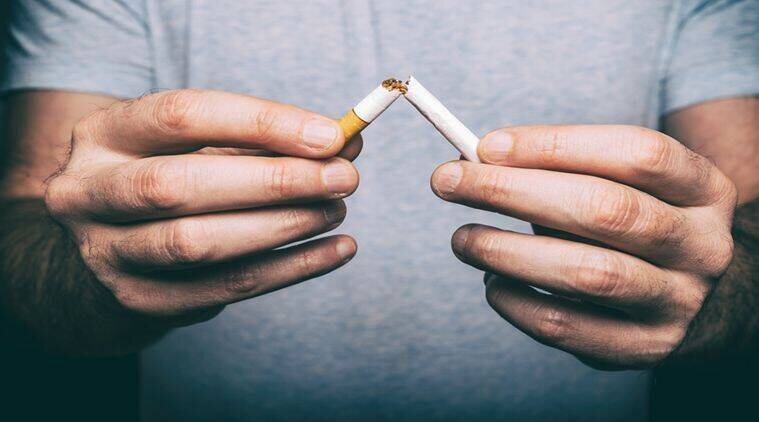Healthy Mouths Lead to Healthier Lives
For most, a healthy mouth consists of brushing and flossing your teeth twice daily. It is a common rule of oral hygiene and the most well-known rule at that. But there is so much more to maintaining a healthy smile! To ensure the best oral health possible, we have collected these 5 tips to follow to keep your smile fresh and your gums in great condition.
1: Dental Checkups are Essential
A dental checkup is recommended only twice a year. Lives and schedules can be busy, but these two days a year are crucial to your oral health, so making time for them is the first tip we suggest. At your routinely checkups, your dentist will give your teeth a good, professional cleaning and also exam your mouth for some key things. You may think you are there just to get your teeth scrubbed, poked, and prodded, but there are many more things happening at the exam you may not know. First, you’re getting a physical exam to check your teeth and gums for any abnormalities, decay, or signs of gingivitis. Next, during the actual cleaning, your dentist or hygienist is removing any buildup of plaque or tarter that a normal toothbrush sometimes can’t get. From there, you get a good flossing, helping your gums and letting the dentist know the state of them, followed by a fluoride treatment to protect your newly cleaned teeth. After the cleaning, your dentist will address anything they found and help you find ways to improve your oral health. Without these appointments, health issues are unknown and can be left untreated leading to many more issues down the road. Plus, you can’t beat the feeling of leaving the dentist with a shiny smile.
2: Choose the Right Toothbrush & Toothpaste
You can find great toothbrushes and toothpastes at normal shopping centers, but here is what to look for when doing so. For your toothbrush, many dentists recommend using a soft, round bristled brush. Teeth can be a sensitive bone and brushing with hard, stiff bristles does them no good. A recent study actually found that using a toothbrush with hard bristles can lead to teeth sensitivity. Brushing too hard with stiff bristled toothbrushes can wear down your enamel and cause your dentin to become exposed, which leads to an unhealthy, sensitive mouth.
For toothpaste, choosing can be hard and confusing to some. All the packages seem to offer the same things and can be difficult to understand. We suggest you look for a toothpaste that contains fluorides. Fluoride is a staple to having healthy teeth and gums. We also suggest looking at the ingredient lists. Some toothpastes are flavored, containing sweeteners and other chemicals that are not great for your teeth. If you are unsure with the ingredients list, look out for the ADA Seal of Acceptance. This comes from the American Dental Association, stating that the product has been evaluated as a safe and effective.
3: Use Fluoride
Fluoride is a mineral that occurs naturally in the foods you eat and the water you drink. This mineral, along with many other, are constantly being added and removed from your teeth’s enamel. Depending on your diet, some acidic and sugary foods attack your enamel and remove the minerals keeping your teeth strong and healthy. Eventually, if the minerals are not replaced, enamel can diminish. To ensure you are getting the mineral fluoride, use a fluoride rinse. You may not know what foods are affecting your mouth or can’t make a diet change, so by adding a fluoride rinse to your teeth’s routine will help protect and maintain your enamel, leaving your teeth strong and health.
4: No Tobacco
Tobacco can be a tough one to crack. It is an addiction that affects many aspects of your health, including your mouth. Smoking hinders your body’s natural ability to heal itself, which can impact any dental work you have or may have done. Also, people who smoke are more likely to develop oral and throat cancers, which are mouth diseases, in turn giving you not the healthiest mouth that you want. Another impact smoking has on the mouth is teeth staining. The tar and nicotine in smoking products turn teeth yellow and overtime, a brown color, that can be hard to treat.
5: Limit Sugar in Your Diet
The last tip we suggest for a healthy mouth is to limit your sugar intake. There are many reasons we could tell you why sugar is bad for teeth, so we will cover a few. After eating or drinking something sugary, has your teeth ever felt rough or fuzzy after? Well, this is due to a quick buildup of plaque that you can get from intaking too much. Plaque thrives in a sugary environment. Sugar also has a direct relation to tooth decay. If plaque is left too long in the mouth, it can lead to cavities and even gum disease. After eating or drinking sugar, you should brush and floss your teeth as soon as possible.
These steps can be easily accomplished, but it takes dedication and a routine. It is important to follow these daily and consider them often when making decisions regarding your mouth and oral health. If you have any questions or would like more information on the tips we provided, or have any concerns about your oral health, call us at 636-671-0102 and we will happily answer. Don’t forget to schedule your regular 6-month checkups as well with us, to ensure a healthy mouth to give you a healthy life.
Green Leaf Dental Care





